
The Academy’s 2025 Organizational Outlook
By Bill Michalisin
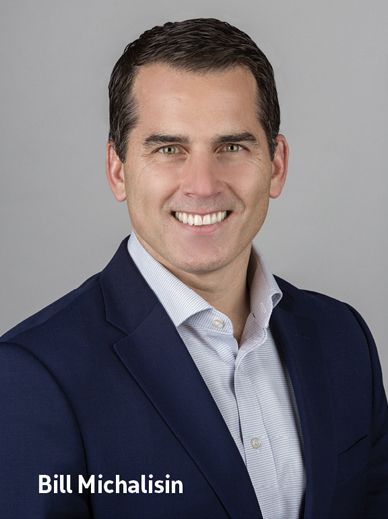
AS WE BEGIN A NEW YEAR AND CELEBRATE OUR 60TH ANNIVERSARY, the American Academy of Actuaries remains steadfast in its mission: serving the public and the U.S. actuarial profession by advancing the importance of professionalism and informing public policy through independent and objective research, analysis, and insights. As CEO, I am privileged to lead an organization that not only supports its members but also contributes to the broader public good. In an era of rapid change and increasing complexity, the Academy’s work has never been more critical to ensuring the integrity and recognition of the actuarial profession and its essential role in pursuit of a vision to support sound and sustainable financial security systems in the United States on behalf of the public and the policy decision makers at the state, federal, and international levels.
Our priorities for 2025 are rooted in three core objectives: delivering tangible value to our members, anticipating and addressing the needs of public stakeholders, and advancing the actuarial profession and elements of professionalism in the U.S. Each of these goals reflects the Academy’s commitment to leadership, collaboration, and innovation as we respond to evolving challenges and opportunities across the profession, various practice areas, and beyond.
Empowering our members
The Academy is committed to being an indispensable resource for actuaries at every stage of their careers. In 2025, we aim to enhance member and volunteer engagement through expanded professional development and education opportunities delivered via current and responsive technology tools and diverse, user-friendly channels, including robust virtual and in-person programming, cutting-edge research and timely thought leadership, and deep engagement with stakeholders on current and emerging issues. We will continue to strengthen our commitment to equipping members with the tools they need to navigate emerging risks such as climate change, cyber, artificial intelligence, and economic volatility, and to deliver enhanced value to their employers and the principles they serve.
Additionally, the Academy is doubling down on its advocacy for the professionalism, integrity and ethics that define sound actuarial work and the professionals who hold the MAAA. Through initiatives such as new member requirements; new and refreshed content like practice notes, whitepapers, and research; updated standards of practice and reinforcement of qualification standards; monitoring and informing the over 1,400 references to the Academy and MAAA in laws and regulations; and expanded support for continuing education that aligns with the Academy’s competency framework; we are ensuring that our members remain at the forefront of technical and professional excellence.
Serving public stakeholders
Public trust is foundational to the Academy fulfilling its mission to serve the public and U.S. actuarial profession. In 2025, we will amplify our engagement with policymakers, regulators, and the public to ensure that actuarial expertise, which is provided by our 1,000-plus volunteers, is recognized and leveraged in addressing pressing societal issues. From confronting the sustainability of Social Security and Medicare to navigating the complexities of insurance affordability and disaster resilience, the Academy and its many volunteers are uniquely positioned to offer objective, data-driven insights that contribute to effective decision-making. This in turn reinforces the unique role the Academy plays in public policy and its impact serving a greater societal purpose and public good.
In pursuit of amplifying our impact, we will deepen our collaboration with other organizations, whether at the state, federal, or international level, or with our peer actuarial organizations, leveraging interdisciplinary approaches to tackle systemic challenges with ideas, research, and solutions that serve a broader good and purpose. Our public policy work will remain rooted in bringing actuarial perspective to issues stressing a balanced and impartial approach and emphasizing the Academy’s nonpartisan role as a trusted advisor in shaping equitable and sustainable outcomes.
Advancing the profession
The future of the actuarial profession depends on our ability to adapt to a dynamic landscape. In 2025, the Academy will prioritize initiatives that promote the elements of professionalism that differentiate actuaries from others and reinforce the self-regulation of the actuarial profession in the U.S., including the joint code of conduct, standards of practice and qualifications, and the counseling and disciplinary process. In addition, the Academy will continue emphasizing the value and importance of equity, diversity, and inclusion within the profession, working with our peer actuarial organizations and affinity groups to help attract and retain top talent into the actuarial pipeline from all backgrounds and celebrate the diversity of thought that leads to better discussions and potential solutions. We will also continue to explore opportunities to grow awareness of actuaries and modernize actuarial practice by discussing and developing work on emerging areas like artificial intelligence (AI) and encouraging innovation while upholding the rigor and integrity that define how the Academy will continue fulfilling its mission to serve the public and U.S. actuarial profession.
As we embark on this reinvigorated path, the Academy remains focused on fulfilling its mission and delivering value to all those we serve. Together, we can ensure that the Academy, its members, and the actuarial profession in the United States continue to thrive, providing relevant knowledge and resources along with critical insights and solutions that are balanced and reflect the diversity of thought needed to navigate an ever-changing and dynamic world.
Advancing and Strengthening Membership
Kasha Shelton
The Academy is making significant strides to enhance its offerings and support for members while shaping the future of the U.S. actuarial profession. Throughout 2025, the membership team will collaborate with their volunteer and staff partners to raise awareness of key initiatives and streamline operational processes to enhance member value for current and prospective members and their employers.
Our 1,000 volunteers are central to the Academy’s success. We will expand efforts to onboard, support, and engage them in 2025. One of the most exciting announcements is the pending launch of an online volunteer platform that will provide an opportunity board where volunteers can browse and apply for roles that match their skills and interests. Opportunities will range from public presentations to peer review to committee service, making it easier for members to find meaningful ways to contribute to the Academy’s mission.
The Academy will also expand its online volunteer communities, which provide virtual spaces for members to connect, collaborate, and share their expertise and experiences as they develop vital objective, nonpartisan, and unbiased work products. These communities will grow throughout 2025, fostering deeper engagement among members and key stakeholder groups. We will provide an enhanced volunteer onboarding program, flexible volunteer roles such as short-term and project-based assignments, and a strong commitment to diversity of thought, further strengthening our volunteer program. By recruiting volunteers with diverse backgrounds and experiences, the Academy will bring fresh perspectives on complex issues and foster innovation, showing that every member’s unique viewpoint is valued and integral to bringing a balanced and objective view to our work.
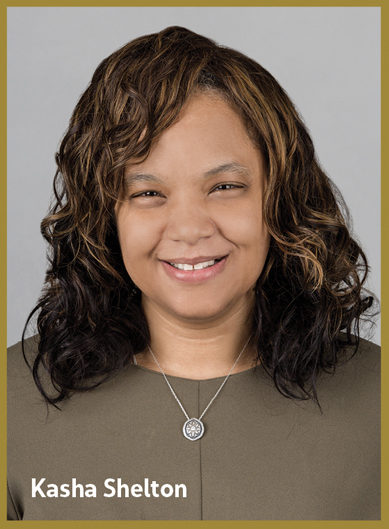
With the goal and understanding that all U.S. practicing actuaries should be members of the Academy, membership remains a core priority, and the Academy continues to provide resources that empower members to be more informed actuaries, to fulfill their roles; and be ambassadors for the actuarial profession in the U.S. Complimentary member-only access to high-quality professionalism and public policy archived webinars, with the opportunity to earn free continuing education credits and direct access to over 300 publications and resources on professionalism and policy topics annually, will continue to reflect and deepen member value for those we serve.
Listening to members is integral to the Academy’s mission. Insights from the last comprehensive member survey conducted in 2022 have driven several significant improvements; another survey planned for 2025 will gather fresh perspectives. This feedback will guide future strategic direction and decisions, assess the impact and progress of recent efforts, and ensure the Academy’s initiatives align with and are responsive to the ever-evolving needs of members, demonstrating that member feedback is not only heard but also influential in shaping the direction of the Academy and in expanding its member benefits and resources.
A critical focus for the Academy in the coming year is our new membership requirements, which take effect in January 2026. Central to these changes is the Competency Framework, which outlines the basic and foundational skills and knowledge that all new members should demonstrate. This framework reflects the evolving demands on those pursuing and maintaining membership in the Academy. With the understanding that actuaries are stationed across the world, those practicing in the U.S. need to understand U.S laws and practices in their specific roles and projects.
To support prospective members, the Academy will launch informational webinars in 2025. These sessions will provide a detailed overview of the Competency Framework, explain the work experience required for membership, and offer practical tips for navigating the future application process. These webinars will help ensure applicants have the information they need to meet the updated requirements when they apply.
With these changes, the membership team will develop a streamlined system to manage the submission and evaluation of membership applications. This system will simplify the process for applicants and enable reviewers to assess qualifications efficiently and consistently. These efforts will ensure a smooth, transparent transition to the new requirements while upholding the Academy’s high standards.
By fostering collaboration, supporting members and volunteers, and responding to feedback, the Academy is building a stronger, more inclusive national actuarial association fulfilling our mission to serve the public and U.S. actuarial profession. These initiatives reaffirm that mission, showing that we are all part of a collective and shared vision that financial security systems in the U.S. be sound and sustainable, and that actuaries be recognized as preeminent experts in risk and financial security
Adapting to a Changing Political Climate
Geralyn Trujillo
With the 2024 election officially behind us, there are naturally a lot of questions about what the results mean for the focus and work of the Academy’s Public Policy team in the coming year. While the Academy remains firmly nonpartisan and focused on offering balanced perspectives, understanding and anticipating what the shift in political dynamics will mean for public policy in the next 12 to 18 months is incredibly important and relevant to our ongoing work.
Consistency in some of our issues, even as we consider slight shifts in how we approach external stakeholders or the likelihood of interest in certain proposals regarding input on and solutions to large and small issues. One way the Academy will continue to engage and identify our priority issue areas is through the Policy Issues Clearinghouse. As we refresh and update the Clearinghouse, some of the areas will remain the same, while others will see a more nuanced focus. For example, as we think about using AI, there are questions that might be specific to property/ casualty’s use of AI in pricing and new product development, while the health area might want to consider the implications it has in the delivery of care. As we heard from AARP’s Debra Whitman during a plenary session at Envision Tomorrow, a focus on aging and longevity incorporates issues within the retirement, health, life, property/casualty, and risk management areas. Thinking about affordability and solvency within public programs, such as Social Security, Medicare, and Medicaid, as well as within the private insurance market, broader conversations around federal tax policy decisions suddenly have real implications across products and practice areas. These are just examples of the issues the Academy touches, and about which we will continue to work on bringing objective, independent and balanced views to aid decision makers at the state, federal and international levels.
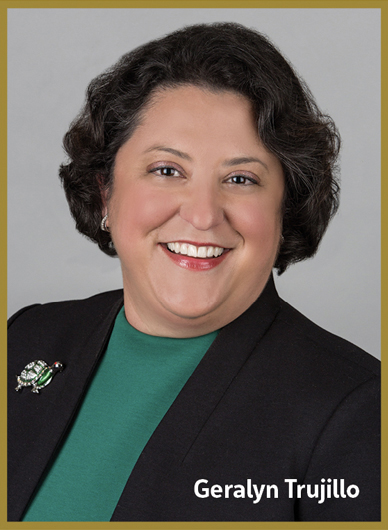
We are also continuing to focus on our relationships with external stakeholders and key audiences. Following the success of the long-running Seminar on Effective P/C Loss Reserve Opinions and the Life and Health Qualifications Seminar, as well as the more recent Health Equity Symposium and Retirement ERISA at 50 Symposium, the Academy is planning three new events in 2025. First up will be the Investment Summit (May 22-23) in New York City.
This inaugural event recognizes the continued focus and growing need for experienced actuaries to work with other financial experts in areas related to investment strategy and risk. Later in the summer, we will host a symposium on the Future of Retirement, given Social Security’s 90th anniversary in 2025 and questions related to the gig economy, the financially disadvantaged, and new considerations related to defined contribution and defined benefit plans. Later in the fall, we will host a symposium that blends issues of health equity with the current policy focus on behavioral and mental health.
One way the Academy will continue to engage and identify our priority issue areas is through the Policy Issues Clearinghouse. As we refresh and update the Clearinghouse, some of the areas will remain the same, while others will see a more nuanced focus.
There will be no lack of opportunity in 2025, as we’ll continue to need to develop material to address issues that are evergreen or emerging throughout the year, particularly issues that would benefit from the unique actuarial perspective our volunteers bring, whether through comment letters, research, various briefing updates and presentations, and more. We will also build, deepen, and nurture relationships on both sides of the political spectrum in Washington, D.C., state capitals, and on the international landscape. All of this is done to support and fulfill the Academy’s mission to serve the public and the U.S. actuarial profession.
Advancing Professionalism and Practice
Brian Jackson
Professionalism is core to the value the Academy delivers to its members and stakeholders. In 2025, the Academy’s Professionalism Department will continue to reinforce the four pillars upon which actuarial professionalism and self-regulation rest: qualifications to provide actuarial services, adherence to the profession’s standards of practice, compliance with the professional standards set forth in the Code of Professional Conduct (“the Code”), and access to counseling resources and being subject to a disciplinary process.
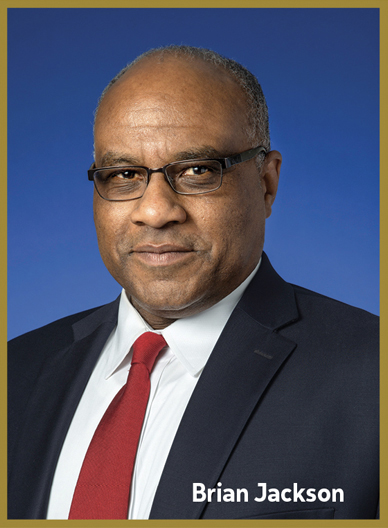
The Professionalism Department helps the Academy fulfill its mission to provide for the establishment, maintenance, and enforcement of high professional standards of actuarial qualification, practice, conduct, and counseling and discipline. It does this by acting as the home to the professionalism bodies that are responsible for these professionalism standards:
- The Actuarial Standards Board, which establishes actuarial standards of practice, that guide actuaries as they perform a wide range of actuarial services in the United States.
- The Committee on Qualifications, which responds to questions about actuarial qualifications and recommends minimum qualification standards to the Academy Board of Directors.
- The Actuarial Board for Counseling and Discipline, which investigates complaints against actuaries, counsels actuaries in professional practice, and recommends appropriate discipline to the membership organizations for actuaries who are found to have breached the Code.
- The Joint Committee on the Code of Professional Conduct, which monitors the Conduct adopted by all five of the U.S.-based actuarial organizations and recommends necessary amendments.
The Professionalism Department helps the Academy fulfill its mission to provide for the establishment, maintenance, and enforcement of high professional standards of actuarial qualification, practice, conduct, and counseling and discipline.
In 2025, the Professionalism Department will continue assisting the Council on Professionalism and Education, which oversees the Academy’s work on professionalism issues and educational opportunities, including the Academy’s popular series of professionalism webinars. Under the Council, the Professionalism Department maintains several committees that focus on various aspects of actuarial professionalism and education. In addition to the Committee on Qualifications and the Joint Committee on the Code of Professional Conduct, these include the Committee on Education, which supports the Academy’s educational efforts including oversight of the Academy’s Competency Framework and the creation and development of any necessary education resources, and the Committee on Professional Responsibility, which promotes knowledge of professionalism within the profession through the publication of discussion papers, including most recently on professionalism considerations for AI.
The Professionalism Department’s goal for 2025 is to foster members’ desire to uphold professionalism and to provide members with the tools to do so, further reinforcing the Academy’s role as the voice on professionalism in the U.S. In addition, the Academy will continue to engage public stakeholders within insurance and other relevant fields to help them better understand the existence and importance of our profession’s standards of conduct, qualification, and practice, and their role in the profession’s ability to self-regulate, as well as what they should expect of actuaries, and members of the Academy who practice in the U.S.
Education and Events Initiatives
Lori Feinman
The Academy’s Education and Events Department focuses on aligning the Academy’s education program with our strategic plan, and looks for innovative ways to provide meaningful, engaging, and effective content through a variety of delivery systems to meet the unique and evolving educational needs of the Academy’s diverse membership.
In 2024, we sunset the traditional format of the Academy’s Annual Meeting, and one of the key initiatives in 2025 we will be focusing on developing an annual event to launch in early 2026 that more closely aligns with the Academy’s mission. We will also be changing the time of year in which the event is held to the spring and combining it with volunteer and leadership visits to Congressional offices and federal agencies. This both gets the Academy’s events out of the busy fall annual meeting and holiday season, and takes advantage of spring in Washington, D.C., for members and volunteers to experience the Academy’s mission firsthand. This new event will debut in the first half of 2026 with the official volunteer leadership transition and a volunteer-focused engagement opportunity remaining in November.
In midyear, the Academy launched its first learning management system, Academy Learning. It’s through this portal that members can now access resources when they need them in a format that works for their learning style. Members can watch recorded webinars and access Academy publications and available seminar and event recordings. Archived Academy content that previously resided solely on actuary.org is now available and searchable on the platform, which is accessible via various devices. In 2025, with the support of the Committee on Education and the Practice Councils, we will begin offering courses with the goal of meeting both the educational needs of actuaries looking to qualify for membership in the Academy, and the continuing educational needs of our existing members.
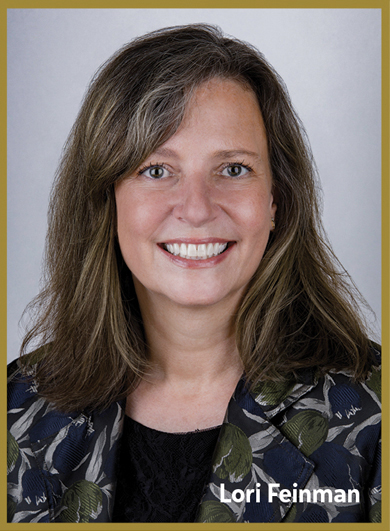
Members can watch recorded webinars and access Academy publications and available seminar and event recordings [on Academy Learning]. Archived Academy content that previously resided solely on actuary.org is now available and searchable on the platform, which is accessible via various devices.
2025 will also debut a new event, the Life Practice Council’s Insurance Investment Summit, May 22-23 at the Marriott Marquis in New York City. Planning is underway to develop a compelling program that will appeal to both members and nonmembers. We will continue to offer the Casualty Practice Council’s Seminar on Effective P/C Loss Reserve Opinions, taking place next year in Salt Lake City, and the Life and Health Qualifications Seminar, both of which are led by an amazing faculty of member volunteers. In addition, the Academy is developing symposiums for both the health and retirement areas that are in the early stages of planning for 2025, and will bring together public stakeholders and actuaries to discuss top issues of the day. The Academy will also continue to partner with the Casualty Actuarial Society as a co-sponsor of the 2025 Casualty Loss Reserve Seminar (CLRS) in Philadelphia. The Academy will continue to develop and deliver convenient online education through the Academy’s webinar program, which typically includes over 30 CE-eligible offerings annually on topics ranging from professionalism and practice area-specifics to emerging cross-practice issues and membership topics. In addition, we will continue to offer our deep library of archived content from previous webinars and annual meeting programs, all of which is free to Academy members via the Academy Learning platform.
If you have any questions about the 2025 initiatives within the Academy’s Education and Events department, or any feedback about our offerings, please email us at education@actuary.org.
Dynamic Advances in IT, HR, and Accounting
Tom Hopkins
“The only constant in life is change.” Those words (or something similar) were uttered by the ancient Greek philosopher Heraclitus. So it is with administrative functions like human resources (HR), accounting, and information technology (IT). These functions are consistently being updated, renovated, and revamped with the goal of becoming more accurate and efficient in support of where the organization is going and how best to guide that direction. The changes for the administrative function started during the past year and will continue as we elevate and advance how we deliver that critical support to the Academy’s operations.
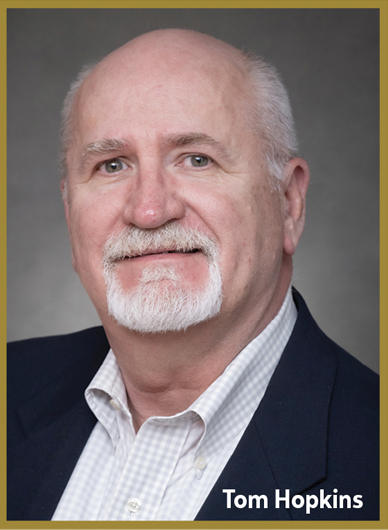
The only constant in life is change.” Those words (or something similar) were uttered by the ancient Greek philosopher Heraclitus. So it is with administrative functions like human resources (HR), accounting and information technology (IT).
For 2024, the accounting team automated the accounting function with travel and expense software, which enabled employees and volunteers to prepare their expense reports digitally (with PDFs, pictures, etc.) and submit them electronically to be reviewed and approved efficiently. It also allowed us to better understand the travel costs for our volunteers and staff, which we were able to utilize during the budgeting process and better plan for future Academy programs. For 2025, the plans include automating the processing of vendor invoices, updating and modernizing the chart of accounts, and creating a management reporting “dashboard” and other advanced reporting capabilities.
For human resources, we created a new intranet site that is visually appealing as well as useful for employees to share and access critical information. The intranet site includes many useful items including a New Employee Portal, Benefits, Open Enrollment, and an updated Employee Resource Guide. Each department has a tab, and information is refreshed about once a month providing updates and priorities, recent wins and learnings, and profiles on team members. Speaking of the Employee Resource Guide (formerly known as the Employee Handbook), we successfully updated this valuable reference to comply with current laws and regulations as well as to codify some of the practices currently in place. In addition, we launched a new internal platform to offer staff access to learning resources and deepen their knowledge to benefit the Academy’s mission to serve and deliver enhanced member value. For 2025, we have plans to create succession plans within each functional area of the organization to reinforce the Academy’s resiliency and sustainability in support of member value and ongoing, efficient operations for the future.
For the information technology function, during the current year, we utilized an outside IT consultant to assess our current structure, policies, and procedures. Since then, we have moved or will move all our servers to the cloud, improving the security of our systems and data against cyberattacks, and updated many of our operating systems. The consultant was able to provide management with a roadmap to aid us in where to direct our attention and resources as we elevate and implement the Academy’s technology platforms for staff, volunteers, and members. Plans for the next year include migrating from SharePoint software to Box.com software to enable volunteers and employees to collaborate virtually in a more cohesive manner, and building a volunteer platform that will streamline their access to relevant resources and engage virtually in a more user-friendly forum. There are also plans to issue a Request for Proposals for a new Association Management System (AMS) to better serve our members and other stakeholders given the critical role that an AMS plays as a centralized source of truth for an organization like the Academy.
And so it goes. Constant change is prevalent in the administrative function as we continually adapt to our ever-changing environment and is necessary as we continue to support the value-focused evolution of the Academy
Communicating the Academy’s Mission
David J. Nolan
In 2025, our marketing and communication efforts will focus on strengthening brand awareness of the Academy, its role as the voice on professionalism and public policy for actuaries in the U.S., and ensuring our members and stakeholders are aware of the resources available to them and the great work that volunteers and staff do every day in fulfilling the Academy’s mission to serve the public and U.S. profession.
With the launch of a new website and marketing technology, we will continue to put a spotlight on Academy activities, promoting our in-person events and webinars as well as the 300+ publications and resources offered annually, leveraging traditional and digital channels to encourage registration and engagement. This includes supporting a new series of summits focused on key practice areas, which help bring to life our work in public policy and role in connecting actuaries with stakeholders on top issues being discussed and explored.
Next, we’ll continue to raise awareness of the new membership requirements that will become effective in 2026, as well as the Academy’s Competency Framework. This comprehensive campaign will involve targeted messaging across multiple platforms to ensure a clear understanding of what’s changing and what it means, providing a smooth transition for new members as well as equipping current members with an understanding of the changes so they can be ambassadors for the value of being an MAAA.
We’re also looking at ways to expand our social media work by creating more opportunities for meaningful engagement with our followers and to share more insights on the work being accomplished by the Academy and its volunteers. A key part will be expanding our approach to content marketing— think of this as creating more compelling stories and resources that showcase our value and member stories. To that end, we’ll be looking for ways to develop more interactive content—such as video, animations, and other formats—that can provide a deeper look at key initiatives and work products.
In the area of public affairs, the communications team will continue its robust outreach to the news media on priority issues such as Social Security reform, cyber, artificial intelligence, climate risk, areas of potential reputational risk to the profession, and promoting the value of objective actuarial expertise. As new priorities emerge with a new Congress, new federal administration, and changes in many state legislatures and regulatory positions, the Academy will evaluate and pursue new media opportunities to grow awareness of the profession and the unique perspective actuaries bring to the issues impacting many aspects of everyday life.
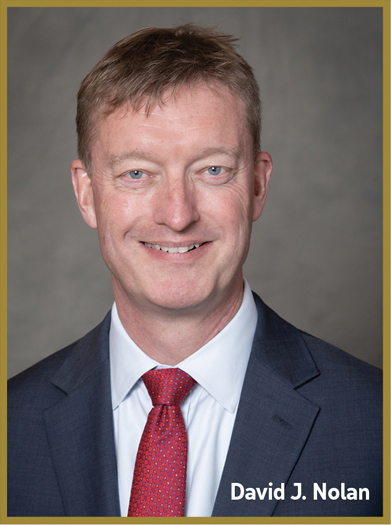
We’ll be looking for ways to develop more interactive content—such as video, animations, and other formats—that can provide a deeper look at key initiatives and work products.
The Academy’s speakers bureau—which arranges expert volunteer speakers to actuarial clubs, employers of actuaries, and actuarial student organizations—plans to incorporate the latest professionalism resources and developments, including the new Academy membership requirements, in presentations, and expand the number of volunteer speakers on public policy issues in external forums such as professional, stakeholder, and industry conferences. This continues to be a significant value proposition for other organizations and entities, including our peer actuarial and affinity organizations, looking for subject matter experts on professionalism, public policy, and membership issues and topics.
With these strategies, we will continue to expand our reach, deepen member connections, and communicate our mission in a way that reflects the value of Academy membership, the depth of knowledge and unique perspective offered by the actuarial profession, and the public good that actuaries provide in service to the many stakeholders we engage with and support.